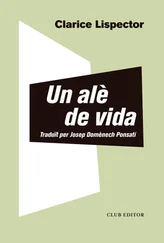– ‘When humans eat animals, those animals become more like people because they become part of us. We are the only two people here in the house who did not eat Petronilla. More’s the pity!’
Pedrina, whom the little girl had always secretly preferred, died a natural death, for she had always been a delicate creature. When the little girl found Pedrina trembling under the blazing sun, she wrapped her up carefully in a dark-coloured towel and then sat her on top of one of those large tiled stoves to be found in all the old farm-houses in Minas Gerais. Everyone warned her that Pedrina was close to death but the little girl was stubborn and insisted on settling Pedrina, all wrapped up, on top of the warm tiles. Next morning Pedrina was a stiff corpse. Weeping bitterly, the little girl was finally convinced that death had claimed her beloved pet hen.
The years passed and she adopted another hen called Eponina.
This time, her love for Eponina was more down-to-earth and less romantic: the love of someone who had already suffered for love. And when the time came for Eponina to be killed and eaten, the little girl accepted the news as the inevitable destiny of any creature born a hen. The hen appears to have some premonition of its own destiny and therefore learns not to love its owners or the cockerel. A hen is alone in this world.
But the little girl had not forgotten what her mother had told her about eating animals one loved: she ate more of Eponina than the rest of the family. She ate without feeling hungry, but with an almost physical satisfaction because she now knew that Eponina would become part of her and be more hers than when she was alive. The cook had prepared Eponina in a traditional brown sauce or molho pardo, made with the blood and some vinegar. And so the little girl went through the pagan ritual which has been handed down throughout the ages, partaking of flesh and drinking blood. During dinner, she felt almost resentful of the others who were eating Eponina. The little girl was made for love: eventually she became a young woman and men entered her life.
The worst thing of all is to become suddenly tired of everything. It is rather like excess, as if one already had everything and wanted for nothing more. Tired of the Beatles. Tired, too, of those who are not the Beatles. Even tired of my inner freedom, which I gained as such great cost. Tired of loving one’s neighbour. Hatred would be preferable. What could save me from this feeling of excess (is it excess or a useless freedom?) would be anger. Not that loving anger you sometimes find. But naked, uncontrolled anger. The more violent the better. Anger with those who know nothing. Anger, too, with those intelligent people who always have something to say. Anger with avantgarde cinema, and why not? And anger with the other kind of cinema as well. Anger with the affinity I share with certain people, as if this excess within me were not enough. And fury with success? Success is a joke, a false reality. Fury has saved my life. Without it, what would have become of me? How could I have borne to read those headlines reporting that one hundred starving children die every day in Brazil? Is anger my deep revulsion against being human? I am tired of being human. And angry at feeling so much love. Some days I am angry just to be alive. Because anger enlivens everything. I have never felt so alert. I know this will pass and that a vital sense of need will return. Then I shall want everything, everything! Oh, how good to need only to be satisfied. Oh, how good to feel that moment of need before the moment of satisfaction. But not to be satisfied too easily. Because one can tire of things which seem easy. Is even writing becoming too easy? Why do I now write with my fingertips when I used to write from the heart? It is sinful, I know, to seek privation. Yet the privation I am speaking of is much more satisfying than this feeling of excess. I simply do not want it. I am now going to sleep because I cannot bear today’s world, so full of useless things. Goodnight, forevermore. I shall be back next Saturday. And please do not write to me: I have no desire to hear the human voice. And if I am listening to myself as I take my leave, that is only because it helps to increase my fury.
But there is only one fury which is blessed: the fury of those who suffer privation.
But how should I feel about my little boy? Because I cannot summon any definite feeling about him. What should I feel? I can see his face bronzed by the sun, a face entirely unaware of its expression. Busy licking at his ice-cream, he looks like some pretty animal — delicate yet ferocious.
The ice-cream is chocolate-flavoured. My son likes it. Sometimes he finds licking takes far too long so he bites into it, and the face he makes is that of someone who is totally unaware of the awkward happiness produced by a lump of frozen ice-cream filling a warm mouth. And such a pretty mouth. I look at my little boy, inscrutable as ever, but he is used to this foolish expression of intense love. He ignores me, and does not mind being observed as he performs this private ritual, so vital and delicate, as he carries on licking his ice-cream with his crimson, watchful tongue. I feel nothing other than a sense of being complete, weighed down by primary matter and solid wood. As a mother, I have no finesse. I am coarse and silent. With rude silence and vacant eyes, I watch the severe expression on my son’s face. I can feel nothing because this must be crude, indivisible love. There I am, recoiling. Recoiling before so much. The enigmatic leaves me with a kind of cruel obstinacy: enigma is my name; there I am, enhanced by nature. The expression on my face must be one of obstinacy, the look in my eyes that of the foreigner who does not speak the language of the country. As if overcome by fatigue, I communicate with no one. My heart is heavy, stubborn, expressionless, and closed to any suggestions.
I am there, and I can see: my boy suddenly looks greedy — he must have found a lump of ice-cream with rather more chocolate and his practised tongue has prised it out. No one could describe me as thin: I am plump, heavy and big, with rough hands I inherited from my ancestors. I am a suspicious woman taking a pause. My son is now eating the chocolate coating. I am an immigrant who has thrown down roots on virgin territory. My searching gaze is absorbed and sombre. And what do I see? A small boy absorbed in eating ice-cream.
The light was too strong for his eyes. Then he felt a violent tug; he was being settled in his cot but how was he to know? All he was aware of was the terror of those faces bending over him. He knew about nothing. And he could not move freely. The voices sounded like thunder, apart from one melodious voice: how comforting. But he was soon tucked in and started feeling terrified. He screamed between the cot-railings and saw colours which he later recognized as blue. A disquieting blue which made him cry. And his fear of that dreadful colic. They would open his mouth and pour down his throat some nasty liquid which he would be forced to swallow. It was somehow easier to bear when the melodious voice gave him his medicine. On those occasions, he did not scream. The one positive thing was that he had just been born. He was five days old.
When he became a little older, he could hear without understanding: ‘He’s no longer any trouble but when he was born he cried and screamed such a lot. Thank goodness, he’s getting easier to handle.’ No, no, it was not easy. It never would be easy. Birth was the death of one being dividing into two solitary beings. It only seemed easy now that he had learned to cope with his secret terror which would last until death. The terror of being on earth yet longing for heaven.
Читать дальше












